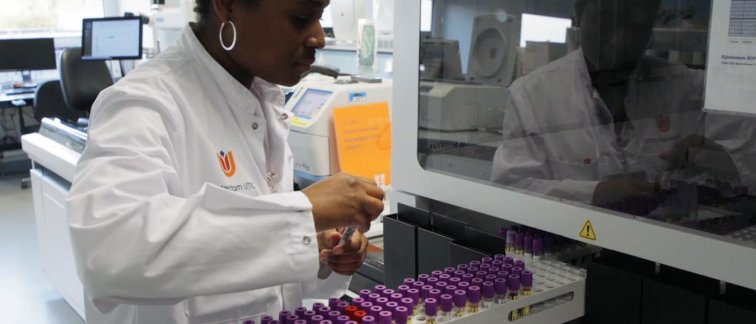The relatively young Amsterdam UMC Covid-19 Biobank is a partner in two important studies, published this week in Science. Partly thanks to this biobank, it has become clearer why some people become so seriously ill with covid-19. An international consortium of researchers, including from Amsterdam UMC, published this on 24 September.
In the spring, the Amsterdam UMC Covid-19 biobank was started. This biobank contains clinical data and body materials (DNA, blood, faeces) of patients who ended up in hospital with covid-19. This is used for research into diagnostics, disease mechanisms and new treatments. Diederik van de Beek is the founder and driving force behind this biobank: "We have one of the most complete biobanks in Europe in the field of covid-19. We think that by analysing all these body substances, we can better understand covid-19. There is still so much unclear about this disease."
First results
In the first article, the researchers show that a small percentage of the very sick patients have a (genetic) immune disorder. This makes them extra sensitive to a severe course of covid-19. The second article explains how it is possible that young, healthy people end up in intensive care due to a covid-19 infection. About ten percent of them appear to make antibodies that do not attack the virus, but the immune system itself. The scientists have also possibly found a first molecular explanation for the phenomenon that men die more often than women. Van de Beek: "I am glad that we have made a nice contribution to these studies with the Amsterdam UMC Covid-19 Biobank. Many researchers at both locations of Amsterdam UMC have worked hard on this project. More than 60 Amsterdam UMC-authors are involved in this article. A fine example of 'team science'."
Future
There are now more than 30 different research projects running using the Amsterdam UMC Covid-19 Biobank. These are studies into various aspects of the coronavirus. For example, sensitivity to get it, why someone is admitted, antibodies, inflammation, coagulation, possible medication, complications, and long-term outcomes. Van de Beek: "We expect to contribute to even more research and results in the near future. In this way, we hope to master the virus.
Want to read more? Diederik van de Beek, neurologist and professor of neurological infectious diseases, was interviewed in the Volkskrant. Amsterdam UMC Covid-19 Biobank got off the ground thanks to a contribution from the Corona Research Fund Amsterdam UMC.

